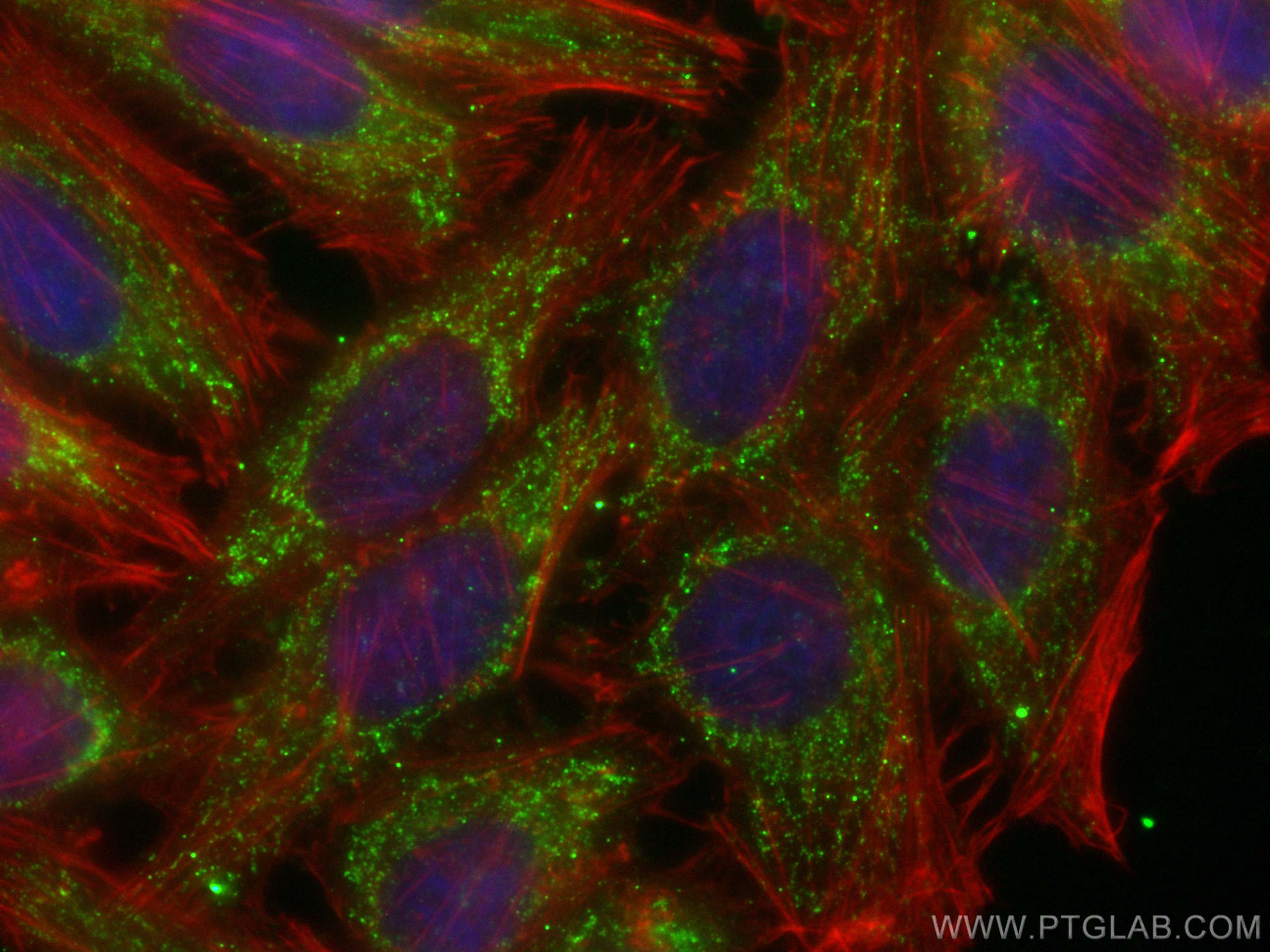Tested Applications
| Positive IF/ICC detected in | HepG2 cells |
Recommended dilution
| Application | Dilution |
|---|---|
| Immunofluorescence (IF)/ICC | IF/ICC : 1:50-1:500 |
| It is recommended that this reagent should be titrated in each testing system to obtain optimal results. | |
| Sample-dependent, Check data in validation data gallery. | |
Product Information
CL488-67707 targets TAK1 in IF/ICC applications and shows reactivity with Human, Mouse, Rat samples.
| Tested Reactivity | Human, Mouse, Rat |
| Host / Isotype | Mouse / IgG1 |
| Class | Monoclonal |
| Type | Antibody |
| Immunogen | TAK1 fusion protein Ag21286 Predict reactive species |
| Full Name | mitogen-activated protein kinase kinase kinase 7 |
| Calculated Molecular Weight | 579 aa, 64 kDa |
| Observed Molecular Weight | 67-70 kDa |
| GenBank Accession Number | BC017715 |
| Gene Symbol | TAK1 |
| Gene ID (NCBI) | 6885 |
| RRID | AB_3084374 |
| Conjugate | CoraLite® Plus 488 Fluorescent Dye |
| Excitation/Emission Maxima Wavelengths | 493 nm / 522 nm |
| Form | Liquid |
| Purification Method | Protein G purification |
| UNIPROT ID | O43318 |
| Storage Buffer | PBS with 50% glycerol, 0.05% Proclin300, 0.5% BSA, pH 7.3. |
| Storage Conditions | Store at -20°C. Avoid exposure to light. Stable for one year after shipment. Aliquoting is unnecessary for -20oC storage. |
Background Information
MAP3K7(Mitogen-activated protein kinase kinase kinase 7) is also named as TAK1 and belongs to the MAP kinase kinase kinase subfamily. It plays an important role in the cascades of cellular responses evoked by changes in the environment. It has been linked to interleukin-1 receptor and tumor necrosis factor receptor signaling (PMID: 16186825). It has 4 isoforms (53-55 kDa, 64-70 kDa and 75-80 kDa) produced by alternative splicing.
Protocols
| Product Specific Protocols | |
|---|---|
| IF protocol for CL Plus 488 TAK1 antibody CL488-67707 | Download protocol |
| Standard Protocols | |
|---|---|
| Click here to view our Standard Protocols |



